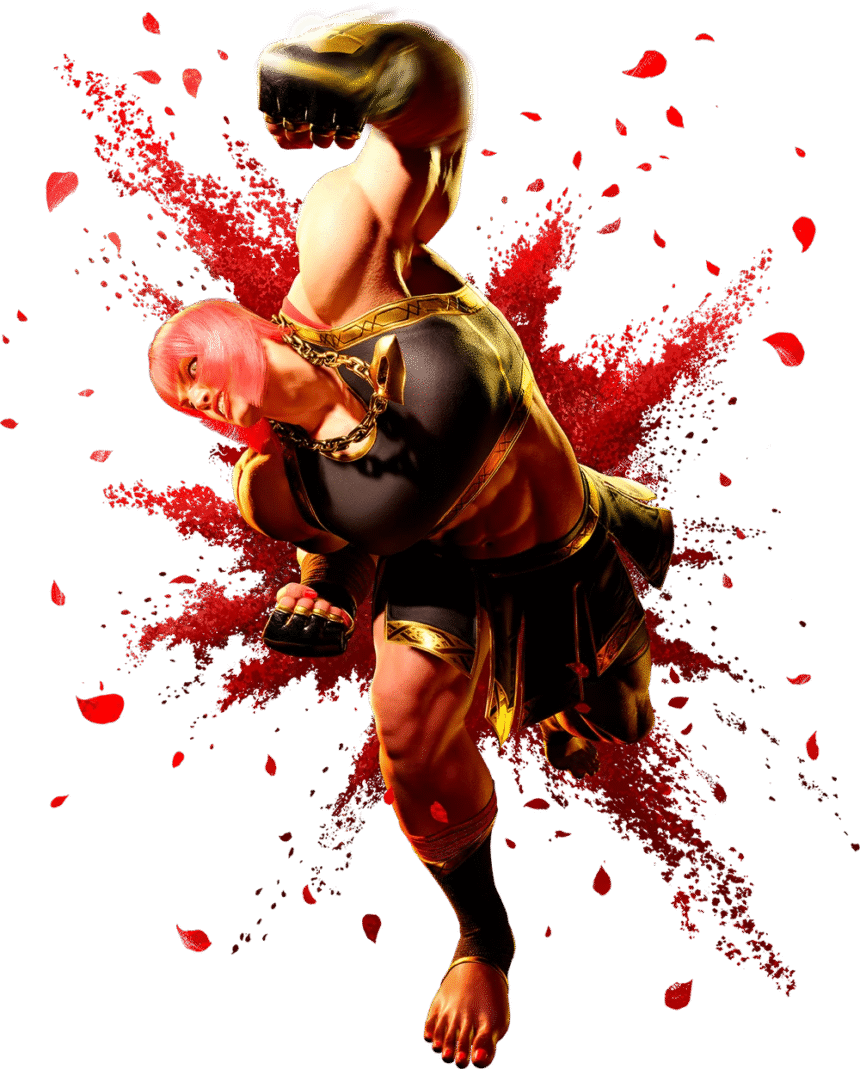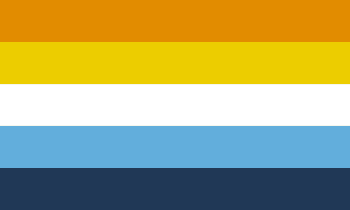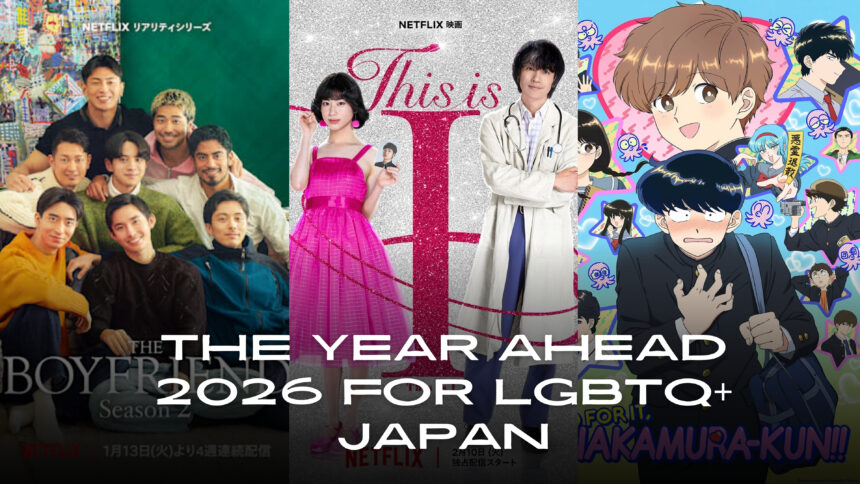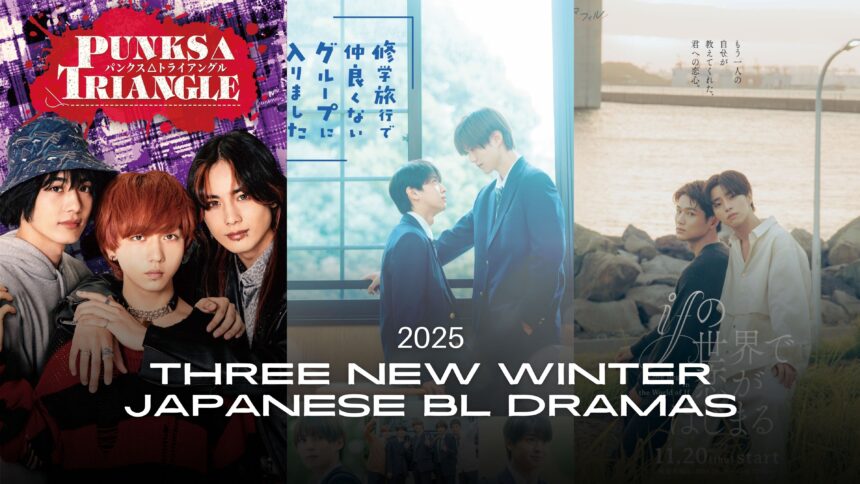Today, video games have broken out of the stereotype of being the preserve of nerdy young men in their parents’ basements to being a mainstream hobby for millions across the globe. Annual revenues for the industry dwarf those of traditional media, including Hollywood movies and music. This popularity has meant an explosion of players of all stripes and backgrounds, including LGBTQ+ players who want to see themselves represented in the games that they love.
Despite some slow starts and sometimes frosty receptions from less mature fans of the medium, today there are many examples of LGBTQ+ characters in Japanese games. Here are just a few of our favorites.
Byleth Eisner
The lead character of the smash-hit 2019 game Fire Emblem: Three Houses, Byleth can be either a man or a woman, depending on the player’s preference — and the romance options are aregly the same.

Like many other games in the series, Fire Emblem: Three Houses has an in depth and enjoyable support system, where characters that fight alongside one another on the map as battle rages around them become closer. As the dialogue explores each character’s backstory, and the differences and similarities between the characters become more fleshed out, the player is not only rewarded with increased chances for the pair to help one another during battle, but also, in the case of the player character, can choose to marry some of the other characters.
Prior to this entry, the Fire Emblem series only allowed for heterosexual pairings, much to the chagrin of the fans, who often “shipped” same sex pairings, with Western fans having held torches for pairings like Sain x Kent and Lyn x Florina since the first English language Fire Emblem, published in 2003.
In 2019, Nintendo and Intelligent Systems finally listened to fans, and allowed for players to romance characters of the same gender. Male Byleth players can cultivate an undying love for Linhardt von Hevring, Yuri Leclerc, or Jeritza von Hrym. Meanwhile, those who opt for female Byleth can choose to have a relationship with Rhea, Sothis, Mercedes von Martrtiz, Dorothea Arnault, or even central antagonist Edelgard von Hresvelg.
Vivian
The wholesome and cute world of Mario is open to everyone, though as Nintendo’s flagship franchise, it has generally shied away from anything beyond the puppy-love romance of Mario and Peach. However, the recent re-release of the cult classic Paper Mario: The Thousand Year Door has shined a spotlight on the transgender character Vivian, to the delight of fans across the world.

Originally released in 2004, Vivian was portrayed in the Japanese version as a character who very much considered herself to be a woman, but was dismissed as such by her abusive sisters, and repeatedly called a man as a way to hurt her feelings. Conversely, in the original English and German translations of the game, she is referred to explicitly as a woman, with any gender-based insult being replaced with more generic attacks on her appearance.
However, as the times changed, the 2024 remake saw the much-loved game not only get more streamlined gameplay and a visual makeover, but an overhaul to the script as a whole. Now, Vivian is confirmed to be a trans woman, confessing to Mario at one point “Truth is, it took me a while to realize I was their sister…not their brother” when talking about her siblings.
This affirmation of her identity has been well received, with many critics and reviewers highlighting it as improved over the original script, Vivian jumping towards the top end of fan-made ‘favorite character’ lists, and the game was even nominated for the 2025 GLAAD Media Awards for Outstanding Video Game on the strength of Vivian’s depiction. Not bad for a paper shadow!
The cast of A Year of Springs
A Year of Springs is a visual novel that explores the lives and stories of three LGBTQ+ young women at the turn of a new era in Japan. Split into one chapter for each character, it explores themes of anxiety, belonging, and change for young people navigating modern life together.
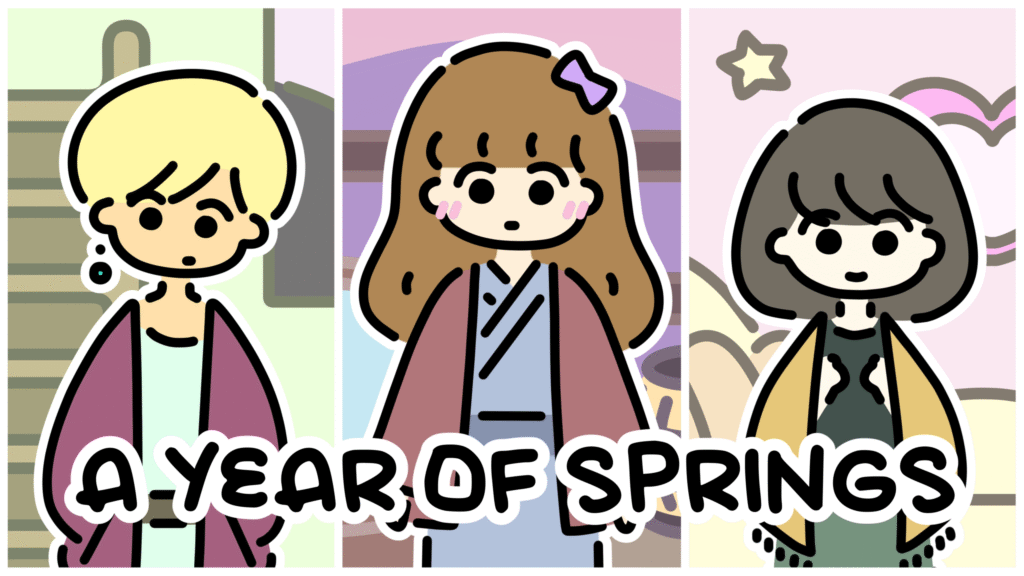
The game starts off putting the player in the shoes of Haru, a transgender woman who is nervous about visiting a hot spring bath with her friends. As well as dealing with the anxieties that a non-transgender player might have already considered in such a scenario — such as how accepting public facilities will be — you must also confront the small things, such as current Japanese law forcing people to use their dead names for official documents, that might go unthought of by people who don’t live with the daily microaggressions that society forces on transgender people every day.
The second is focused on Erika, who is occasionally the accidental instigator of these kinds of microaggressions. Not through any malice or ill-feeling, but because Erika, who is so uncaring about labeling herself or her sexuality (not caring whether she’s called, bisexual, pansexual, or anything else) can sometimes be a little clumsy when trying to help and understand her friends.
Finally, Manami is, by and by, obliged to confront some uncomfortable truths about herself and her sexuality. Her chapter handles aspects of coming out and self-discovery rarely handled this well, and almost never in video games.
For more on A Year of Springs, you can find our detailed review here.
Marisa
The Street Fighter series has been running for decades, has introduced dozens of characters, of whom many fan “headcanon” interpretations have labelled LGBTQ+. And yet, as of today, only one has been confirmed as canonically bisexual: Street Fighter 6’s Marisa. An Italian wrestler of Greek descent, her trademark Corinthian helmet-style haircut and imposing physique mark her out as a woman to be reckoned with, handily towering above most men in the game and easily the buffest female character.
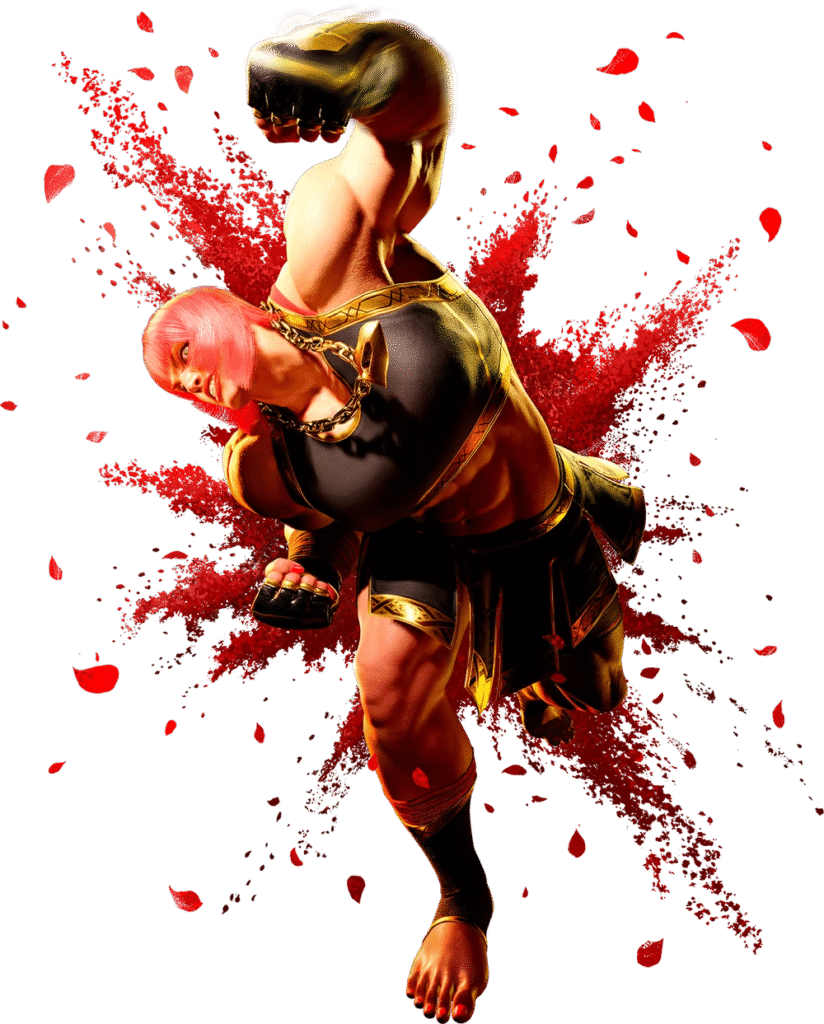
Marisa isn’t just a meat-head, though. She trains hard, and works to improve her wrestling skills, while also being extremely caring and considerate towards her opponents. Her win quotes are always respectful, and she has a rivalry with French judo practitioner Manon based on a respect for her skills as a fighter. More, their rivalry is tinged with more than a little romantic frisson, as Manon say that while she dislikes being called strong, she likes it when Marisa says it, and the two become very close. Marisa is also portrayed as polyamorous, as at the conclusion of her World Tour story, her grandmother offers her a choice of two suitors, a man and a woman. Marisa chooses both.
Bridget
Debuting in 2002’s Guilty Gear X2, Bridget has been through a long journey, both in her story continuity and in the real world. Initially, series creator Daisuke Ishiwatari wanted Bridget to be a cross-dressing boy, but kept this intention so close to his chest that he asked the character designers to instead create a “girl with no breasts.” Initially thought to be a woman before the game debuted, and her design was all that was known about her, fans and critics were surprised by the reveal that she was born a man, and she became a breakout character.

In continuity, Bridget is born as a twin brother into a village that believes a superstitution that twins of the same gender are an omen of ill-fortune. To prevent the village meeting with a terrible fate, her parents dress and raise Bridget as a girl. Eventually, Bridget grows to become a skilled fighter and hunter, and reveals their origins as proof that the supposed curse is fake.
One of the most potent sources of discourse in the fighting game community, with many asserting that Bridget was a cross-dressing man, and others insisting that she is a trans woman. For years, the arguments went back and forth, until 2021’s Guilty Gear Strive finally put an end to the discussion once and for all.
In the end, despite her struggles and victories, disproving the superstition and being allowed to live her life as a man didn’t make Bridget happy. The only thing that can bring her happiness is embracing her true self, as a woman.
Despite forgeries by so-called “fans” that claimed that this was not present in the original game, or that her accepting her life as a woman was part of a “bad ending,” the developers made it clear on their website that Bridget is, and always will be, a girl. Not a bad ending, but a happy one.
Final Thoughts
These are just a few of the LGBTQ+ characters in videogames from Japan. There are many more out there to discover, and many stories to unearth. And with more and more games allowing for personalized character creations, you might even be able to see yourself in your favorite game, literally.

